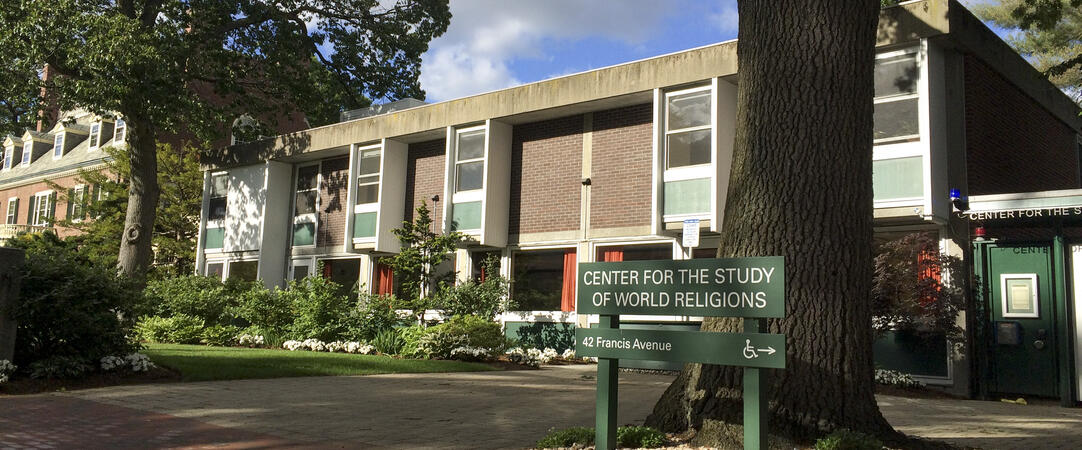Hinduism and Ecology
October 2-5, 1997
- Opening Session and Plenary Address
- Introductory Session
- Gandhi and Ecology
- Contemporary Ecological Issues: Forests
- Rivers
- Film Showing
- Women's Issues and Ecology
- Literature as Ecological Resource
- Plenary Address
- Krishna, the Bhagavad Gita, and Ecology
- Panel Discussion on Policy Implications
Opening Session and Plenary Address
Chair - Arvind Sharma, McGill University
Kamla Chowdry, Society for the Promotion of Wastelands Development, New Delhi - Gandhi's Truth and Sustainability for the 21st Century
Respondent - Diana Eck, Harvard University
Introductory Session
Welcome - Christopher Key Chapple, Loyola Marymount University, and Arvind Sharma, McGill University, Co-conveners
O.P. Dwivedi, University of Guelph - Ecology and Hindu Religion
K.L. Seshagiri Rao, Encyclopedia of Hinduism and Indic Religions - The Five Great Elements (Panca Mahabhuta): An Ecological Perspective
Respondent - George James, University of North Texas
Gandhi and Ecology
Chair - Mary Evelyn Tucker, Bucknell University
Larry Shinn, Berea College - The Inner Logic of Gandhian Ecology
Vinay Lal, University of California, Los Angeles - Gandhi and Deep Ecology
Respondent - Kamla Chowdry, Society for the Promotion of Wastelands Development, New Delhi
Contemporary Ecological Issues: Forests
Chair - John Grim, Bucknell University
Ann Gold, Syracuse University - If You Cut One Branch, You Cut My Finger: Court, Forest, and Environmental Ethics in Rajasthan
David Lee, Florida International University - Sacred Plants and Forests: Lessons from the Ramayana
Frederique Apffel-Marglin, Smith Colllege, and Pramod Parajuli, Syracuse University - Sacred Groves and Ecology: Ritual and Science
Respondent - Frank Korom, Museum of International Folk Art
Rivers
Chair - Lawrence Sullivan, Director, CSWR
Kelly Alley, Auburn University - Separate Domains: Hinduism, Politics and Environmental Pollution
David Haberman, Indiana University - River of Love in an Age of Pollution
William Fisher, Harvard University - Sacred Rivers, Sacred Dams: Visions of Social Justics and Sustainable Development along the Narmada
Chris Deegan, School for International Training - Circumambulating the Narmada: Damming a Sacred Landscape
Respondent - Anne Feldhaus, Arizona State University
Film Showing
Kaise Jeebo Re! (How Do I Survive, My Friend!)
This film tells the struggles of uprootment, survival, and human dignity. This feature length documentary was compiled from footage that was shot over a period of six years in the Narmada Valley and other areas where resistance against dams has taken place. The film is in English, Gujarati, and Hindi, as well as the Bhilali and Gondi tribal languages.The co-directors of the film are Anurag Singh, involved in photography and film-making on political, environmental and social issues since 1984, and Jharana Jhaveri, a student of social movements who has been involved with human rights, labor, environmental, and anti-communal movements. She uses film as a medium for social transformation and to train rural and urban people.
Women's Issues and Ecology
Chair - Arvind Sharma, McGill University
Jael Silliman, University of Iowa - Indian Feminist Responses and Challenges to Environmental Population Paradigms
Madhu Khanna, Indira Gandhi National Centre for the Arts, New Delhi - The Ritual Capsule of Durga-Puja: An Ecological Perspective
Vijaya Nagarajan, University of San Francisco - Women and the Earth: The Art of Symbolic Expression
Respondent - Kusumita Pedersen, St. Francis College
Literature as Ecological Resource
Chair - John Grim, Bucknell University
Laurie Patton, Emory University - Nature Romanticism and Violence in Rig Vedic Interpretation
Mary McGee, Columbia University - Environmental Consciousness in the Dharmashastras and the Arthashastras
Respondent - Julius Lipner, University of Cambridge
Chair - Lawrence Sullivan, Director, CSWR
Philip Lutgendorf, University of Iowa - Having a Forest and Eating It Too: “Narrative Ecosystem” in the Sanskrit Epics
T.S. Rukmani, Concordia University - Literary Foundations for an Ecological Aesthetic
Respondent - Frank Clooney, Boston College
Plenary Address
Chair - Arvind Sharma, McGill University
Anil Agarwal, Director, Centre for Science and Environment, New Delhi - Can Hindu Beliefs and Values Help India Meet its Ecological Crisis?
Respondent - Jack Hawley, Barnard College
Krishna, the Bhagavad Gita, and Ecology
Chair - Christopher Key Chapple, Loyola Marymount University
Shrivatsa Goswami, Sri Caitanya Prema Samsthana - Krishna and Vrindavan: Theology and Play of Ecology
Lance Nelson, University of San Diego - Reading the Bhagavad Gita from an Ecological Perspective
Ranchor Prime, International Consultancy on Religion, Education and Culture - Practical Hindu Ecology
Respondent - David Eckel, Boston University
Panel Discussion on Policy Implications
Chair - Mary Evelyn Tucker, Bucknell University
Participants:
Anil Agarwal, Center for Science and Environment
Harry Blair, Bucknell University
Christopher Key Chapple, Loyola Marymount University
Kamla Chowdry, Society for Promotion of Wasteland Development
Shrivatsa Goswami, Sri Caitanya Prema Samsthana
Arvind Sharma, McGill University

